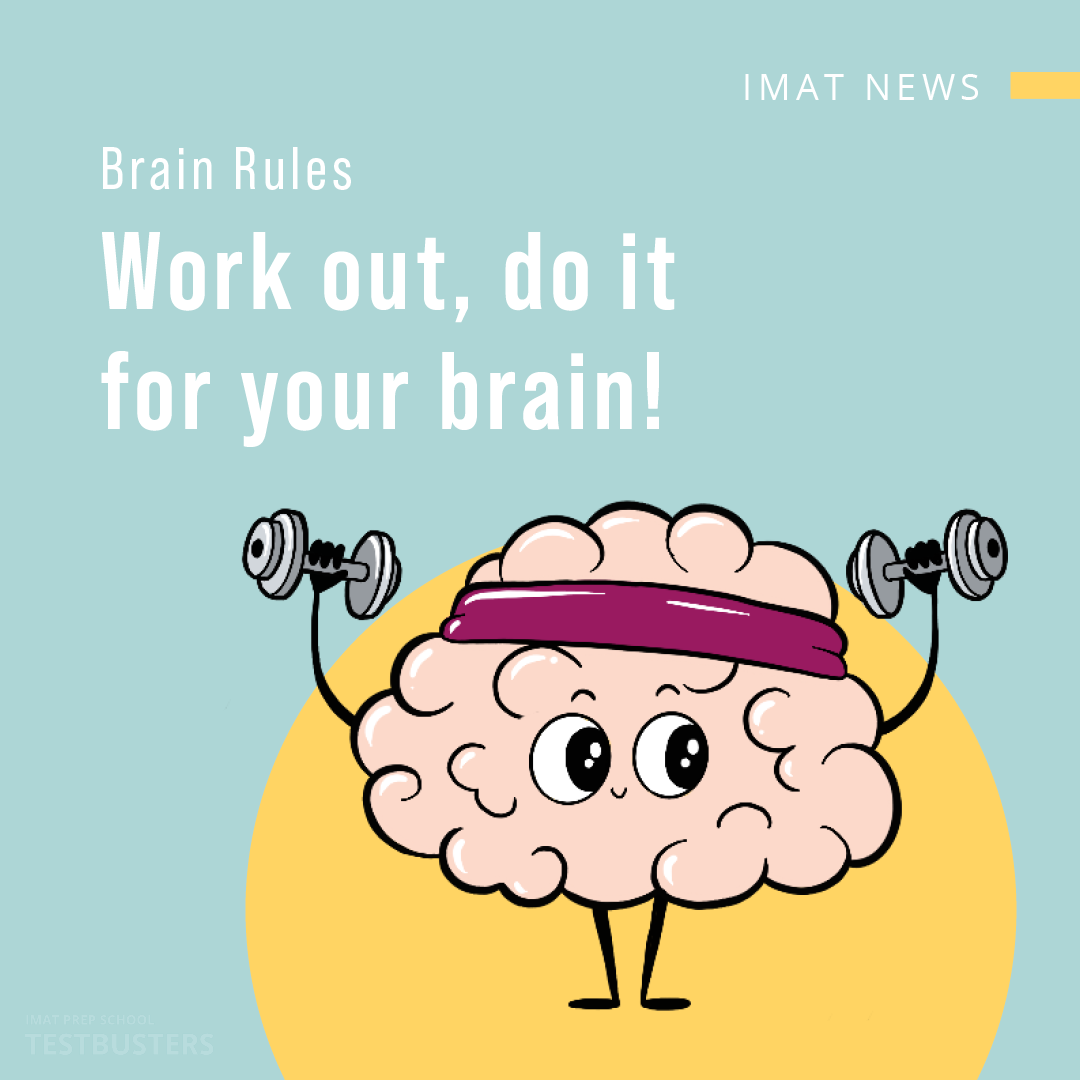Working out is not only good for your body but for your mental health too. The connection between exercising and better productivity in different activities such as studying is well known.
As early as two thousand years ago, Marco Tullio Cicerone (106-43 AD), writer, philosopher, lawyer and politician, investigated the association between working out and improving cognitive performances. He also concluded that there was a correlation between doing some sports and preventing cognitive decay and unhealthy ageing.
Exercising influences the functioning of blood vessels and the metabolism of the neuro system positively, thus improving the brain’s functioning. The cardiopulmonary capacity of each individual plays an essential role in all this. Many studies have shown a positive correlation between working out and productivity in settings such as school and university.
So what’s the take-home message? While getting ready for IMAT this summer, remember not to spend all your time dealing with books. Allow yourself some time to do some sports. A constant improvement can be observed when working out, up to twelve weeks. After this period, improvements tend to decrease, remaining, however, at a higher level than the starting point.
Working out has several benefits on our body: better cognitive control, increased memorisation and delayed mental decline to prevent certain illnesses. A few numbers? Less than 3 hours (150 minutes) per week will allow you to get remarkable results. We have to underline, though, that not all sports have the same benefits.
Even though all sports have mental and physical benefits, aerobic activities offer a broader cognitive development. Every good workout session starts with warming up. Don’t worry; a quick run is enough, and for the lazier ones, a good option is stepping for a couple of minutes. The workout should be long and at low intensity. Some of the best aerobic activities are squatting, stepping, running and cycling.
Studies on the topic:
At the end of 2015, a transversal study was published on the Medicine & Science in Sports & Exercise (American College of Sports Medicine’s official journal). The scholars’ équipe noticed a vital relationship between respiratory capacity and studying performances and, more generally, school productivity.
The sample, made up of 1286 boys and girls between the age of eleven and fourteen, were observed for three years. The study investigated the physiological aspects and educational performances. The evaluation’s method used was PACER (Progressive Aerobic Cardiovascular Endurance Run) tested to measure the cardiovascular and aerobic capacity. The category in which the participant could fit in were: high, medium, basic, non-fit cardiopulmonary capacity.
During the three-year-long study, frequent and precise correlations between higher cardiopulmonary strength and better studying performances were highlighted. Also, those who were placed in the “basic” category at first were able to improve their CFR (Cardio-Respiratory Fitness) and, at the same time, their school performances.
How is that possible? Cardiorespiratory capacity is associated with better cognitive control, neuronal plasticity and an increase in memorisation.
Another proof of the good that exercising does to our mental health comes from the University of Montreal, Canada. The study was published in the Annals Journal of Health Promotion, and it was conducted on 2700 Canadian students between 1997 and 1998. The results showed that even five minutes of physical activity led to improvements in tests supposed to measure intellectual abilities.
Another interesting study comes from the University of Illinois. The researchers analysed a specific hippocampus’ area using an MRI scan and noticed that children aged 9 to 10 who practised sports had, indeed, had a more extensive hippocampus than those who did not.
So what’s left to say? “Mens sana in corpore sano”



